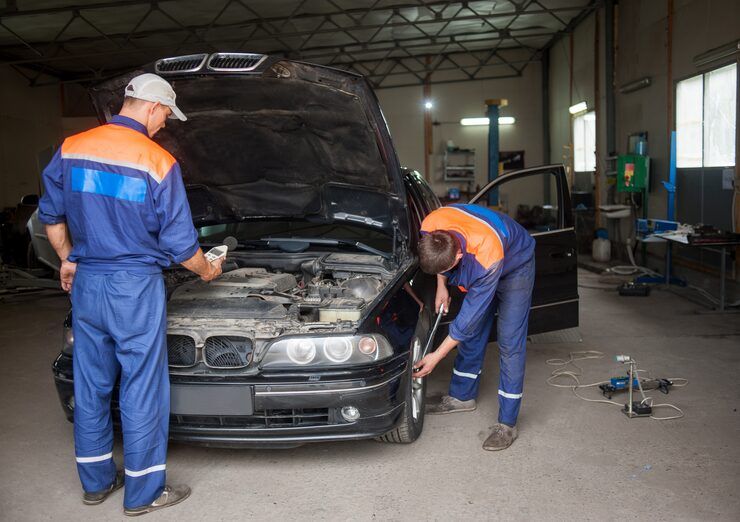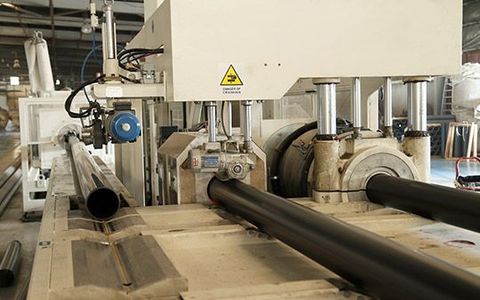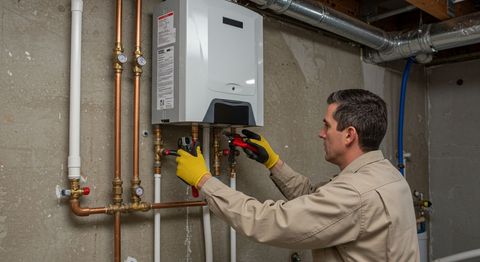Vehicle repairing services exist to address mechanical, electrical, and bodywork issues that arise from wear and tear, accidents, or lack of maintenance. These services range from routine servicing, oil changes, and tire replacement to complex engine repairs and diagnostic checks.

Importance – Why vehicle repair matters today
Proper vehicle repair and maintenance impact several aspects:
-
Safety: Regular checks prevent accidents caused by faulty brakes, tires, or engine issues.
-
Performance: Timely repairs improve fuel efficiency and engine output.
-
Cost-effectiveness: Preventive maintenance reduces expensive breakdowns and major repairs.
-
Longevity: Proper care extends vehicle lifespan.
-
Resale value: A well-maintained car holds higher resale value.
Vehicle repair services are essential not only for individual drivers but also for businesses that rely on fleet vehicles, delivery services, and transportation companies.
Recent Updates – Trends in vehicle repair
Over the past year, the automotive repair industry has experienced notable trends:
-
Advanced diagnostics tools (2024–2025): Modern vehicles now use OBD-II scanners, AI-based diagnostic systems, and telematics for accurate fault detection.
-
Eco-friendly practices: Many repair centers now follow sustainable practices, such as recycling parts and using environmentally safe fluids.
-
Mobile repair services: Mechanics offer on-site repairs for minor issues, saving time for customers.
-
Electric vehicle (EV) repairs: As EV adoption rises, specialized repair services for batteries, electric motors, and software are increasing.
-
Digital scheduling and tracking: Apps and platforms allow customers to book services, track repairs, and receive reminders.
These trends show the shift toward technology-driven, customer-focused, and eco-conscious vehicle repair services.
Laws or Policies – Regulations affecting vehicle repair
Vehicle repair and maintenance are subject to various laws and policies:
-
Vehicle safety standards: Compliance with national safety regulations ensures repairs meet legal requirements.
-
Consumer protection laws: Repair shops must provide transparent pricing, warranty information, and service guarantees.
-
Environmental regulations: Disposal of hazardous materials, oils, and batteries must comply with environmental protection laws.
-
Certified mechanics: Many countries require licensed or certified technicians for certain repairs, especially for emissions and safety systems.
-
Recall compliance: Repair centers must follow manufacturer recalls and safety notifications to prevent accidents.
Following these regulations ensures legal compliance, safety, and customer trust.
Tools and Resources – Enhancing vehicle repair efficiency
Repair and Diagnostic Tools
-
OBD-II scanners: Detect engine and electrical issues.
-
Tire pressure monitoring tools: Maintain safety and performance.
-
Brake testing machines: Ensure braking systems function properly.
-
Alignment and suspension equipment: Maintain smooth driving and tire longevity.
Online Resources & Apps
-
Repair shop directories: Websites like AutoMD, CarMD, and Yelp help find reliable mechanics.
-
Maintenance trackers: Apps like Car Minder or Drivvo track service schedules and reminders.
-
DIY guides: Platforms like YouTube tutorials or manufacturer manuals offer basic maintenance tips.
Support Services
-
Roadside assistance apps: Help in emergencies with towing or minor repairs.
-
Fleet management platforms: Track maintenance schedules, fuel usage, and repair history for businesses.
Table – Common Vehicle Repairs and Maintenance Frequency
| Service Type | Recommended Interval | Purpose |
|---|---|---|
| Engine oil change | Every 5,000–10,000 km | Lubricates engine, prevents wear |
| Tire rotation & balancing | Every 8,000–10,000 km | Ensures even tire wear |
| Brake inspection | Every 12,000 km or annually | Maintains stopping power |
| Battery check | Every 12–18 months | Prevents unexpected failure |
| Air filter replacement | Every 12,000–15,000 km | Improves engine performance & efficiency |
FAQs – Clear answers to common questions
Q1: How do I find a reliable vehicle repair service?
Look for certified mechanics, positive reviews, transparent pricing, and warranty policies. Referrals from trusted sources are also valuable.
Q2: How often should I service my car?
Routine servicing depends on manufacturer recommendations, usually every 5,000–10,000 km or six months, whichever comes first.
Q3: Are mobile repair services safe and effective?
Yes, for minor repairs and diagnostics. Ensure the mobile service uses certified technicians and proper tools.
Q4: Can I perform basic maintenance at home?
Basic tasks like checking tire pressure, oil level, and battery condition are safe at home, but complex repairs should be handled by professionals.
Q5: How do I handle emergency repairs?
Keep roadside assistance contacts, spare tires, and emergency tools. For serious issues, tow the vehicle to a certified service center immediately.
Final thoughts
Reliable vehicle repairing services are essential for maintaining safety, performance, and longevity. With evolving technologies, eco-friendly practices, and mobile services, vehicle care has become more efficient and accessible.
By staying informed about trends, tools, and regulations, vehicle owners can ensure optimal performance, reduce repair costs, and extend the life of their vehicles. Investing in trusted repair services is not just about fixing problems but proactively maintaining your vehicle’s health for years of safe and smooth driving.






